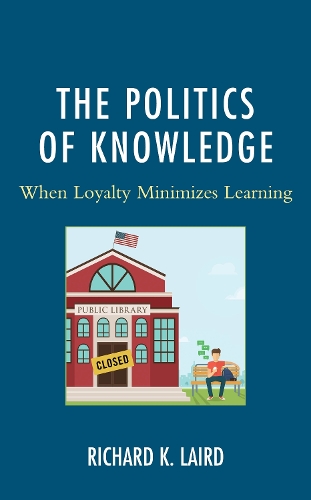
The Politics of Knowledge: When Loyalty Minimizes Learning
(Hardback)
Available Formats
Publishing Details
The Politics of Knowledge: When Loyalty Minimizes Learning
By (Author) Richard K. Laird
Bloomsbury Publishing PLC
Lexington Books
3rd May 2019
United States
Classifications
Professional and Scholarly
Non Fiction
Politics and government
306.20973
Physical Properties
Hardback
306
Width 159mm, Height 231mm, Spine 29mm
653g
Description
Whether or not the U.S. is in decline can be debated, but there is evidence that its political system is becoming less able to solve major problems. This is in part because loyalty to a belief or an ideology may be taking priority over learning how to understand the problems. This work attempts to revitalize the importance of learnability by reviewing some fundamentals of who we are, how the system works, and why learning is difficult. Humans driven by opinions and perceptions tend to discount politics similar to the way they might discount science, yet it was the study of science and politics that brought much of mankind to remarkably higher standards of living. Government, and the economic system it implemented, was initially designed for the purpose of channeling self-interests into public benefits. Understanding what an inclusive political culture is, or why there is a Constitution, for example, could be useful toward restoring the credibility of our central political organization, the core of societys stability and development. We are losing respect for our governments decision-making ability, but in a democracy, citizens must be held more accountable for who their government is. The hypothesis is that if more humans are more learnable, we will increase the possibilities for finding the best solutions to big problems.
Reviews
It is rare that a book comes along that combines a discussion of complex and potentially difficult ideas and concepts with a topicality that addresses crucial and indeed fundamental issues that confront us in today's world. The Politics of Knowledge achieves that goal. The basic argument is that we have, for various reasons, created an environment in which inflexible thinking about our problems ("Loyalty") has handicapped us in thinking about new solutions and possibilities. Ranging from questions such as "Why a two Party System' to "Political correctness" and "Rebooting Education," Professor Laird takes on a fascinating journey of discovery and forces us to rethink much of what we know about politics and society. It is a book well worth reading, and one that should have a real impact on the way we approach problems and problem solving. -- Euel Elliott, University of Texas
Author Bio
Richard K. Laird is adjunct professor of social and political science at Bergen Community College.
